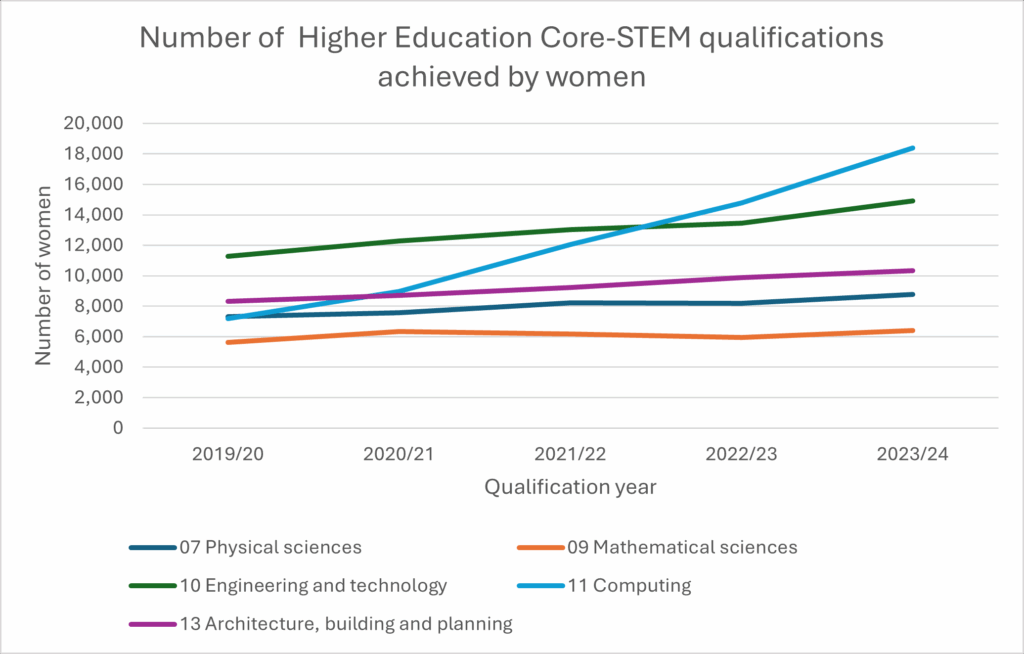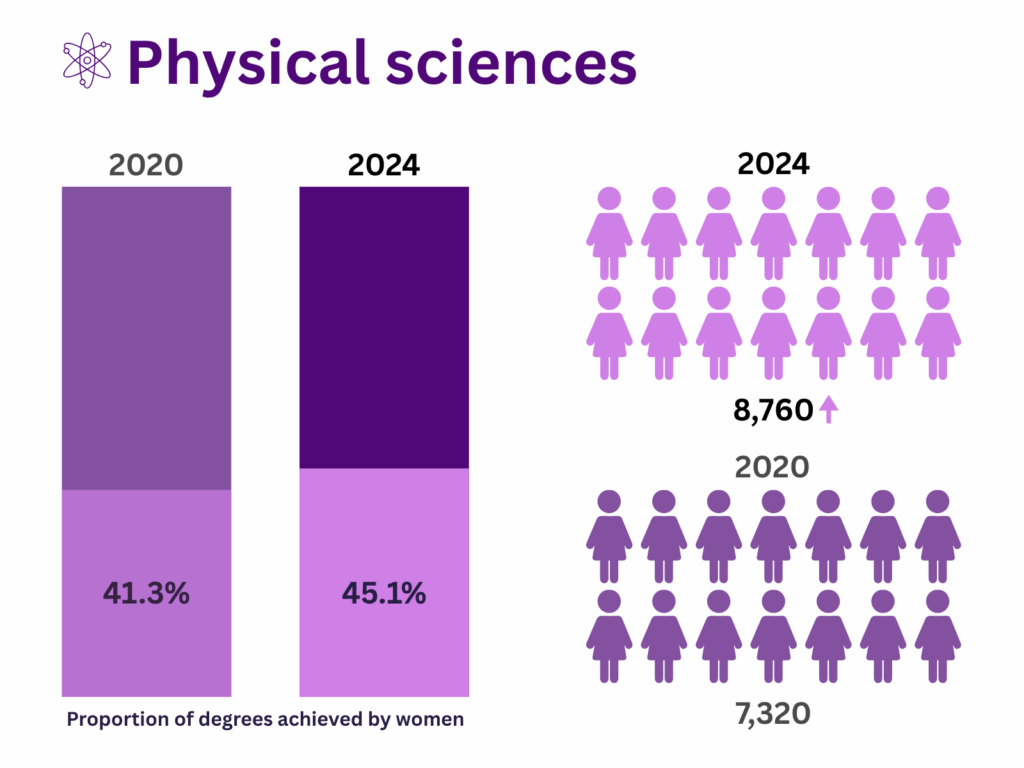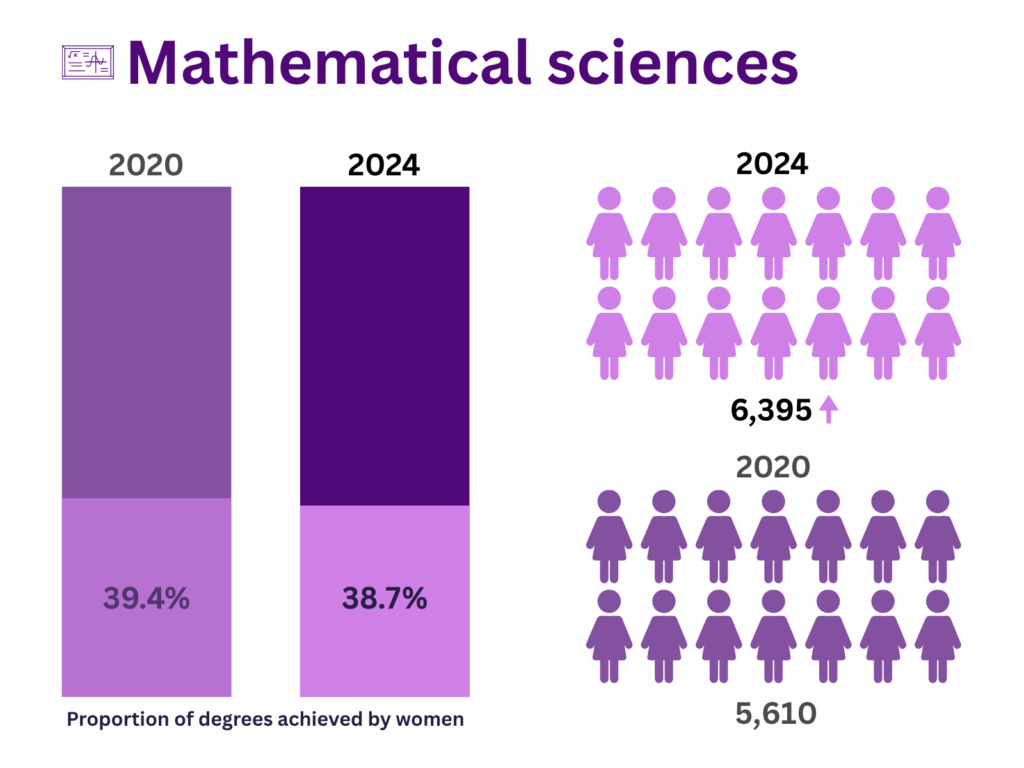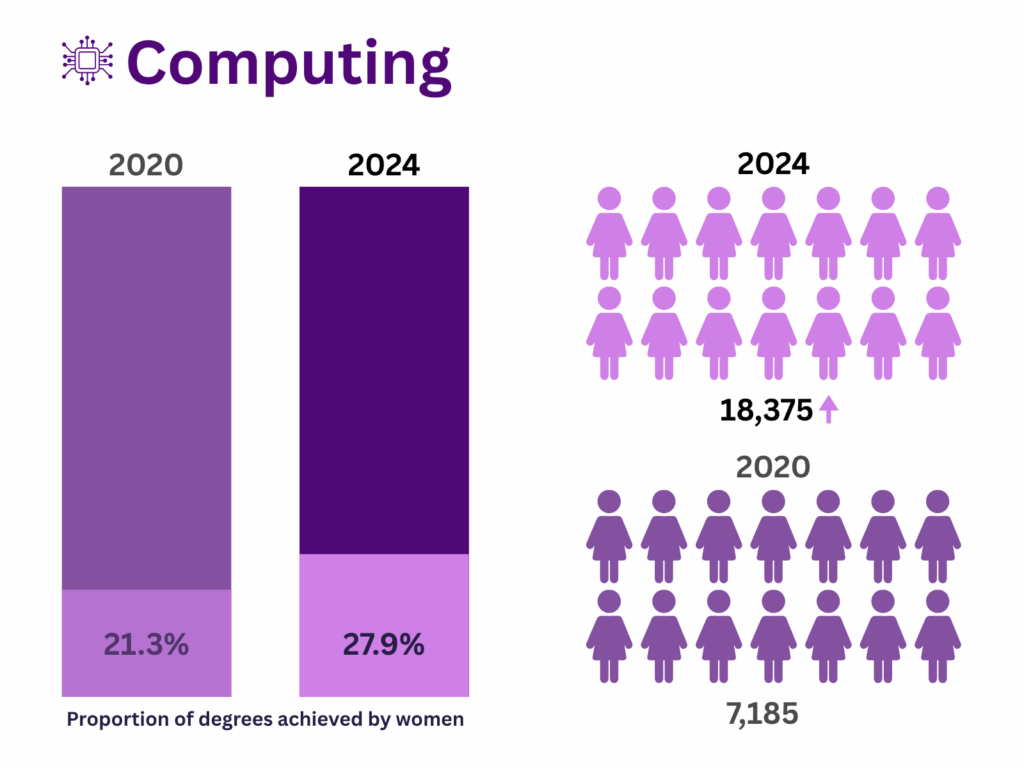The latest Higher Education (2023/2024) statistics help us better understand the subjects students are studying, from undergraduate degrees to postgraduate qualifications.
Encouragingly, the total number of core-STEM higher education qualifications are at an all-time high, up 38% since 2020, with more than 191,000 achieved in 2023/2024. Core-STEM degrees account for nearly 1 in 5 (18%) of all degrees, highlighting the growing popularity and career opportunities available within the STEM sector.
However, the gender gap is significant with only 58,755 of core-STEM qualifications being achieved by women in 2024, this is less than a third (~30%) of the total number of qualifications.
Despite this, the number of higher education core-STEM qualifications achieved by women has increased in all subjects, showing promising signs of progress.

This was largely driven by a 156% increase in computing qualifications since 2020. This is a trend which we expect to continue due to another increase in the number of girls taking Computing A-level last year.
Let’s dive deeper into how specific areas of STEM are performing.
Physical sciences*
Of all the core-STEM subjects, physical sciences continues to have the highest proportion of qualifications achieved by women. This has grown from 41.3% in 2020 to 45.1% in 2024.

Mathematical sciences
At the other end of the scale, mathematical sciences has the lowest entry numbers of all core-STEM categories and has shown the slowest growth since 2020, with just a 14% increase over the period.
Despite growth being slow, the overall representation of women remains relatively stable, with a very slight drop from 39.4% in 2020 to 38.7% in 2024.

Engineering and technology
Whilst the number of women achieving engineering and technology qualifications is steadily improving – and performing well compared to other core-STEM subjects – it still has the lowest representation with women representing just 22.8%.
Encouragingly, the number of women achieving engineering and technology qualifications is up 32% since 2020 and continues to see a year-on-year increase.

Computing
Representation of women across computing degrees has risen from 21.3% in 2020 to 27.9% in 2024. While this figure remains well below parity, the growth in participation is striking: the number of higher education qualifications achieved by women has more than doubled, increasing from 7,185 in 2020 to 18,375 in 2024.
This makes computing the fastest-growing core-STEM subject, with an incredible 156% increase in women qualifiers since 2020.

Architecture, building and planning
Architecture, building and planning has second-highest rate of representation by women at 41.8%. In 2024, for the first time, the number of female qualifications has reached over 10,000.

Overall, it’s positive to see increased participation for women across all core-STEM subjects. Although the growth is slight in some areas, progress is evident, particularly in fast-growing fields such as computing and engineering.
With sustained focus, especially at earlier stages of education, we can build on this momentum and move closer to a more balanced and inclusive STEM workforce.
About WISE
At WISE, our purpose is to enable the STEM sector to create workplaces where women are fully represented, supported and empowered to thrive. We believe in the power of collaboration to ensure STEM is an inclusive and representative sector for all. We believe when diversity of thought is embraced, innovation thrives, and we can bridge the skills gap to drive progress across the sector.
Find out more about how you can work with WISE on our website.
Footnote
This is a WISE analysis of the 2023/2024 Higher Education Student Statistics provided by HESA: Higher Education Student Statistics: UK, 2023/24 – Qualifications achieved | HESA.
*Physical sciences are defined by the CAH groups provided, this includes physics, astronomy, chemistry, physical sciences (non-specific), forensic and archaeological science, sciences (non-specific) and natural sciences (non-specific)
